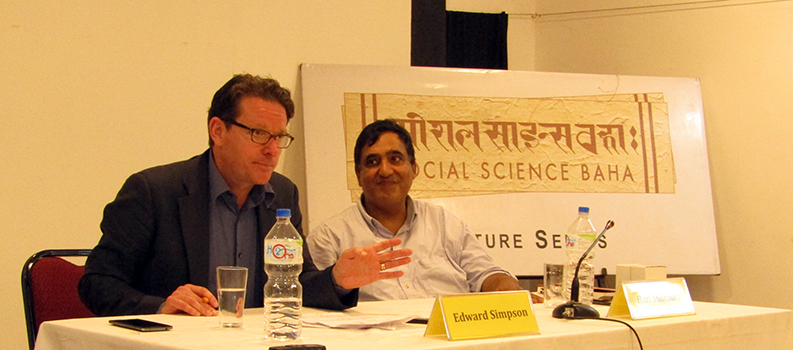Lecture Series
Reconstruction in Gujarat: Possible Lessons for Nepal

Edward Simpson
on
Reconstruction in Gujarat: Possible Lessons for Nepal
For ten years following the 2001 earthquake in Gujarat, I studied the process of reconstruction. I did so as an anthropologist, more interested in the social life of reconstruction than in the science of technology or engineering. I learnt that most of what is generally known about disasters is produced by those who have a stake in presenting the clear up and reconstruction as rip-roaring successes – at the grassroots the everyday aftermath of a disaster is a different thing altogether.
This was the earthquake that first brought Narendra Modi to power, a period of high nationalism in Gujarat. Consequently, I examined how abstract political ideas were made into concrete realities through rebuilding. I looked at how the terms of loan agreements with development banks, as well as compensation, relocation and rebuilding policies entered the lives of ordinary people. I also considered how they reacted with anger, protest and corruption in the face of neo-liberal governance.
My study was also about the creative role of memory, and the uses of history, hope and forgetting in the aftermath. In this talk, I present the key messages from Gujarat, as I see them, for what might be to come in Nepal.
* * *
To listen or download lecture in audio format
Edward Simpson is Professor of Social Anthropology at School of Oriental and African Studies, London. He is currently involved in research on post-disaster reconstruction in India and the politics of infrastructure in South Asia more generally. He has written on various aspects of the society and history of Gujarat, western India. His books include: The Political Biography of an Earthquake: Aftermath and Amnesia in Gujarat, India (2014), Idea of Gujarat: History, Ethnography and Text (2010) (co-edited with Aparna Kapadia).
This lecture was organised in collaboration with Martin Chautari.
